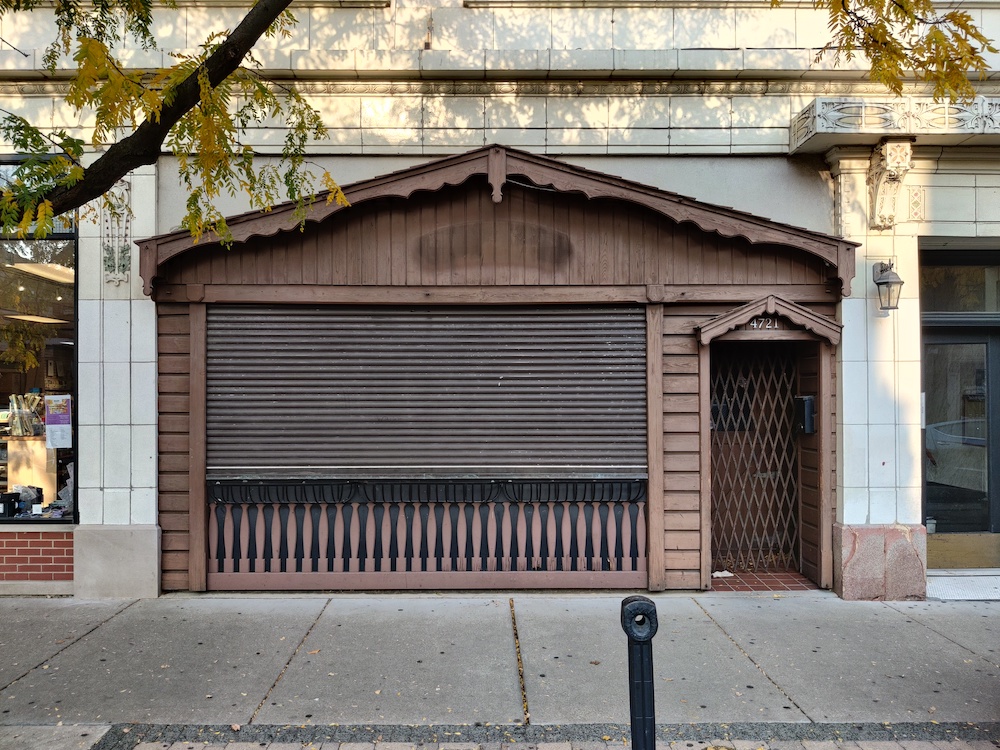
My favorite bar has closed, probably forever. This is a small thing in the scale of problems in the world, particularly since I couldn’t be called a regular there; I’m not that much of a bar person. But The Huttenbar is a touchstone for me, where I’ve had some of my favorite conversations with people I like and a place where I don’t think I ever had a bad experience.
Small and intimate with low wood ceilings, it doesn’t serve food and has never once hosted a rowdy crowd of any kind. It’s for sipping great German beer, adults who like to talk, and relaxing among people you probably don’t know personally, but have all agreed to just slow down for a bit.
Among the hundreds of businesses closing in my city due to the Pandemic, Huttenbar is the first I truly cared about. A part of my life I really liked is now entirely in the past, never to be revisited again.
We’re probably not even at the halfway mark of the Pandemic, if scientists are correct. Friday night I watched the head of the National Institutes of Health, Dr. Francis Collins, say that we’ll likely be living with masks and gathering restrictions until Fall 2021. But even his estimate seems optimistic, since it expects that Americans will wear masks at a better rate than now, and vaccines expected in the spring will be relatively effective.
What I mean to say is: It’s possible we could be living like this for longer, like late 2022.
My little bar closing is really such a small thing. I mean let’s get real: Kids can’t go to school, we can’t work in offices, hotels and restaurants are closed, churches can’t meet, stores of all kinds are going out of business, and of course hospitals are filling up with Covid patients at a record rate and people are dying.
We are in the middle of wrenching societal change and it’s impossible to know where all this ends up. The only thing we do know for sure is that the next set of changes will be bigger than we can imagine right now, and as of today, we still don’t know how to make lemonade out of the lemons.
Earlier on, we allowed ourselves some optimism that things would get better, get safer, but now as the whole country is enveloped in Covid, with nary a village or town unblemished by the virus, we know there is no escape.
This is the time of year I would begin to daydream about vacations to come, travel to visit friends and family around the country, a summer stay in a rented house, and opportunities to see the world beyond my city.
Last year my family eeked out some of that, with a late spring camping trip to South Dakota, where the spaces are wide and Covid was sparse. But our summer trip to western New York was banned to us because New York required Illinoisans to quarantine upon arrival. We likely won’t visit family for Thanksgiving because the virus is raging in most of those states, and the last thing we want to do is possibly infect the older members of our family. It’s an obvious choice: Loving at a distance is better than risking killing up close.
In the middle of all this pain, all of these things we don’t do so we stay safe, our habits are changing in giant ways. My wife and I have started to like working from home in the same house. I like taking my son for a hot dog during lunch. We’re cooking from home constantly, and saving heaps of money by not driving, not commuting, not eating out, not buying new clothes. I’ve been hanging out in my neighbors’ backyards more often, and frankly, I’m not upset that I don’t have to clean up my house for guests. Without a daily commute, I feel like I have more time, and I’ve been reading more, texting, emailing, zooming, and writing postcards to friends more.
I’ve been trying to imagine how things could change more, but then I remember that I never imagined this pandemic lifestyle in the first place. Short of ideas of what’s to come, all I can do is remind myself that more change is to come, and most of it is not going to be welcome.